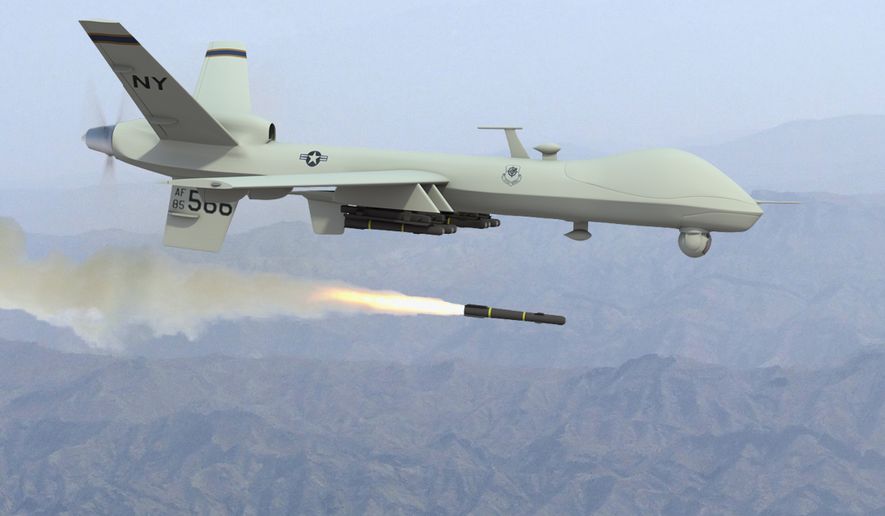The Pentagon says it has killed a chemical weapons expert who was using his experience to create toxic war tools for Saddam Hussein to help the Islamic State.
Pentagon officials said Friday that coalition forces working to stamp out militants in Iraq and Syria killed Abu Malik during a series of five airstrikes that took place near Mosul, Iraq, on Jan. 24. Officials familiar with the operation said that Mr. Malik had been working with Islamic State of Iraq and the Levant militants since summer 2014. One military official, speaking on condition of anonymity, said that coalition members had high confidence that Mr. Malik was killed in one of the airstrikes following the attack.
U.S. military aircraft were used to target and terminate Mr. Malik, a second military official. The reason Mr. Malik was targeted is because coalition members have become increasingly concerned about the extremist group’s efforts to acquire chemical weapons, the official said.
“We know ISIL is attempting to pursue a chemical weapons capability, but we have no definitive confirmation that ISIL currently possess chemical weapons,” the official said.
U.S. Central Command, which tracks overseas operations in the Middle East, said in a statement that Mr. Malik bounced from working for Saddam Hussein to supporting al Qaeda operations to helping the Islamic State try to achieve its terror goals.
“Malik was an ISIL chemical weapons engineer who worked at Saddam Hussein’s Muthana chemical weapon production facility before affiliating with al Qaeda Iraq in 2005,” the statement reads. “He later joined ISIL and his past training and experience provided the terrorist group with expertise to pursue a chemical weapons capability. His death is expected to temporarily degrade and disrupt the terrorist network and diminish ISIL’s ability to potentially produce and use chemical weapons against innocent people.”
SEE ALSO: Islamic State using MANPADS against A-10 Warthogs in Iraq: report
Officials declined to say how coalition forces were able to verify that Mr. Malik was dead in the aftermath of the airstrike. Officials also declined to explain when they were able to identify the body.
“It takes time, to be sure, you know,” the first military official said. “During the strike, we got pretty good confidence, but they wanted to be completely sure and that takes a little time.”
• Maggie Ybarra can be reached at mybarra@washingtontimes.com.




Please read our comment policy before commenting.